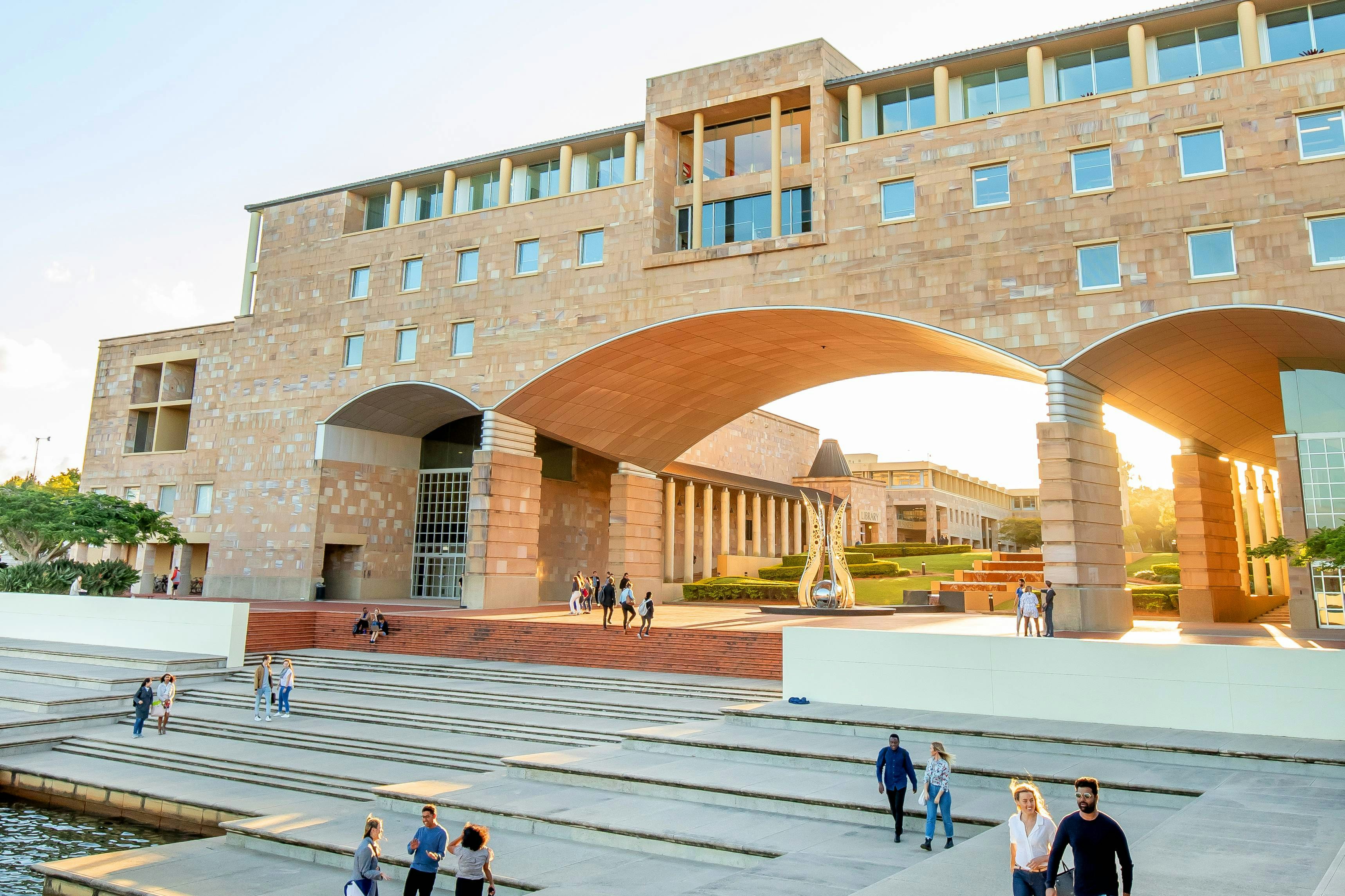Case Study
Zayed University Leads Assessment Innovation with Integrity-Assured Digital Learning
Zayed University transforms assessment with Cadmus, strengthening integrity, boosting student engagement, and leading digital reform across the UAE.

About the university
Share with colleagues
Download the full Case Study
Take an in-depth look at how educators have used Cadmus to better deliver assessments.
Highlights
83.3%
Increased understanding of assessment
60%
Decline in academic misconduct
100%
Positive educator experience
Zayed's Assessment Challenge
Zayed University is redefining how assessment and integrity can coexist in an AI-driven era. Guided by its Strategic Plan, the University set out to transform the educational journey through interdisciplinary learning, applied research, and partnerships that create lasting value for society — ensuring graduates are prepared for the future of work and grounded in ethical, real-world practice.
To achieve this, Zayed recognised the need to reimagine assessment as a driver of learning transformation — one that could:
- Deliver an integrated model of assessment and feedback to strengthen graduate employability through authentic, transferable skill development.
- Assure academic integrity and authenticity at scale in an evolving digital and AI landscape.
- Enhance the academic and student experience through streamlined workflows and learning analytics to inform teaching and institutional decisions.
“Assessment must help students think, not just prove they can. In the age of AI, our task is to design for authenticity — to preserve the struggle, the curiosity, and the reflection that make learning human. Integrity isn’t a policy; it’s a practice embedded in every act of learning. It also needs to help lead behavioural change. Transform established learning culture that has maybe lost its way.”
Faced with this challenge, Michael Pazinas, Acting Director and Pedagogical Innovation Specialist at for Educational Innovation at Zayed University, set out to find a solution that could deliver both innovation and integrity at scale. He identified Cadmus as the partner capable of supporting Zayed’s vision for authentic, student-centred, and integrity-assured assessment. Together, they introduced a data-driven model that has laid the foundation for institution-wide digital assessment reform across all faculties.
Zayed’s Digital Assessment Solution
The Center for Educational Innovation at Zayed University and Cadmus partnered to roll out a comprehensive digital assessment ecosystem to design, deliver, and manage coursework and exams seamlessly within one environment. This initiative advanced the University’s commitment to quality, consistency, and evidence-based decision-making, positioning Zayed University as a regional leader in AI-era assessment innovation.
“This partnership [with Cadmus] reflects our ongoing effort to make assessment more coherent, transparent, and meaningful. By bringing the full process into one environment, we can better connect design, delivery, and feedback, ensuring consistency and integrity across the University. Most importantly, it allows us to use evidence to understand learning more deeply and to make decisions that genuinely enhance the student experience.”
Elevated Assessment Quality and Consistency
Assessment Specialist at the CEI, Dr. Emily Winchip has worked with faculty to create a model of assessment and feedback that united long-form coursework and digital exams under a consistent institutional framework. Educators designed assessments using scaffolded templates and relevance statements that connected each task to real-world, interdisciplinary application. Built in rubrics and feedback tools strengthened consistency and efficiency in marking and moderation, while ensuring every assessment measured applied knowledge and transferable skills. This approach enhanced both assessment quality and student clarity—reinforcing Zayed’s mission to prepare graduates for the future of work.
Enhanced Academic Integrity
A cornerstone of Zayed University and Cadmus’s partnership was a proactive approach to integrity assurance—embedding education, prevention, and detection across long-form assessment and exams.
Using the Learning Assurance Analytics, educators could track assessment construction in real time, identifying pasted or inauthentic content and guiding students with educative feedback before submission. This early-intervention model reduced misconduct and strengthened students’ understanding of ethical academic practice.
For digital exams, real-time analytics assessed student effort and engagement—including time on task, session activity, and browser behaviour—to distinguish genuine participation from irregular patterns. These insights enabled educators to validate performance, refine exam design, and ensure fair, transparent assessment experiences.
This proactive, data-informed model reduced misconduct and strengthened ethical academic practice across the institution, without compromising administrative burden.
“This is the only tool where we can see exactly how students have worked. It's nice to see the analytics and it's very easy to use.”
Greater Academic and Student Experience
Through streamlined digital workflows and real-time analytics, Zayed created a connected assessment experience linking teaching, learning, and institutional insight. Educators were provided with a unified environment to manage assessments from creation to marking, supported by analytics that enabled early identification and outreach to at-risk students. Students benefited from a clear, consistent workspace with embedded resources and transparent feedback, improving confidence and engagement. In exams, a familiar digital environment reduced anxiety and promoted equity of access. This connected model enhanced efficiency for staff, clarity for students, and insight for decision-makers—supporting Zayed’s evidence-based approach to educational excellence.
Implementation Approach
Zayed University led a phased rollout of its digital assessment initiative across six faculties, partnering with Cadmus as a key enabler of institutional reform.
Analysis of Academic Units
The University and Cadmus partnered across faculties and 21 modules to align assessment design and delivery with institutional objectives. These sessions identified opportunities to strengthen assessment consistency, academic integrity, and student experience through a unified digital approach.
Faculty Onboarding and Support
Academics participated in targeted workshops and 1:1 sessions to align assessment design with strategic priorities. Training focused on using scaffolded templates, rubrics, and analytics to strengthen assessment quality and integrity. Educators were also trained on Learning Assurance Analytics, which monitor the process of student work rather than only end submissions—helping identify unusual patterns or behaviours early. These sessions ran alongside digital exam release training, ensuring the highest standards of academic integrity across both exam and long-form assessment periods.
Assessment Redesign for a Digital Environment
Assessments were restructured for digital delivery using best-practice scaffolding and relevance statements. Embedded skills and integrity resources provided point-of-need support, while analytics enabled proactive identification of at-risk students.
Transitioning of Exams Online
Where applicable, exams were transitioned to secure, digital delivery. Exam formats were reviewed to ensure alignment with the University’s examination framework and academic integrity standards, providing students with a familiar and equitable online experience.
Validation of Platform Success
Following the pilot, outcomes were reviewed with faculty leadership using learning analytics and integrity data to evaluate student engagement, performance, and educator experience. Insights from this review guided the next phase of Zayed’s digital assessment reform.
University Expansion
Following the success of the pilot, Zayed University rapidly scaled their implementation of Cadmus across the institution. Today, Zayed is delivering 425 assessments across 126 subjects, achieving a 94% positive student experience rate – a strong indicator of impact achieved in a short timeframe. Building on this, the University plans to extend Cadmus’ further into digital examinations, including secure, in-campus LockDown Browser exams.
University Outcomes
The outcomes of Zayed University reflect its leadership and strategic vision to deliver authentic, data-driven, and high-quality assessment experiences that strengthen employability, uphold integrity, and enhance learning at scale.
Institutional Outcomes
Zayed established a scalable digital assessment ecosystem that reinforces its core pillars of interdisciplinary education, data-driven decision-making, and integrity at scale.
Learning Assurance and Integrity Analytics provided early visibility into academic behaviours, to proactively identify and support students at risk.
- 114 Academic Integrity Reports were generated in response to low-assurance indicators identified through the Learning Assurance Analytics—reflecting proactive educator engagement and continuous monitoring to uphold academic standards
- In total this means 24% of assessment cases were further investigated
- On average, there were 4 integrity nudges per student prompting them to paraphrase or quote work that was pasted to mitigate misconduct
This proactive, educative approach reduced misconduct, saved time in investigations, and advanced Zayed’s vision for authentic, outcome-driven learning.
Building on the success of the pilot, Zayed is now leading digital assessment reform in the UAE, delivering over 300 assessments across 126 subjects with Cadmus—cementing its position leader in academic integrity and AI-ready assessment innovation.
“These outcomes show what is possible when integrity and learning are treated as part of the same process. Early insight and gentle intervention help students reflect, adjust, and grow before issues escalate. It’s a shift from catching misconduct to understanding learning — and that’s where genuine progress begins.”
Educator Outcomes
Educators reported improved assessment quality, greater efficiency, and stronger confidence in maintaining academic standards.
- 100% rated their overall experience as positive
- 80% agreed the system improved assessment design and reflection
- 60% saw improvements in submission quality
- 60% saw misconduct decline
Within the digital environment, educators could identify and contact at-risk students directly, using engagement analytics to prompt timely action and support. These nudges encouraged students to commence or continue their work, improving participation rates and submission quality.
Through scaffolded templates, rubrics, and analytics, educators achieved greater alignment between assessment design, teaching outcomes, and student performance. The streamlined digital environment reduced administrative overhead while promoting consistency and quality across courses.
Student Outcomes
Students reported significant improvements in assessment clarity, relevance, and engagement across faculties.
- 93.6% rated their overall experience as good to excellent to date
- 100% found assessments easy to use and resources accessible
- 83.3% reported greater understanding of assessment requirements
- 83.3% were more inclined to seek academic support
- 70.5% submission rate across all summative assessments
By faculty, satisfaction ranged from 88.9% to 100%, reflecting the positive impact of consistent task design and integrated feedback across disciplines.
Students also demonstrated stronger engagement: of those contacted through the learning analytics dashboard, 42% re-engaged within three days and 75% within seven days.
These outcomes directly advance Zayed University’s mission to transform degrees through real-world, interdisciplinary learning, reinforcing its position as a pioneer of authentic digital assessment.
Category
Student Success
Academic Integrity


